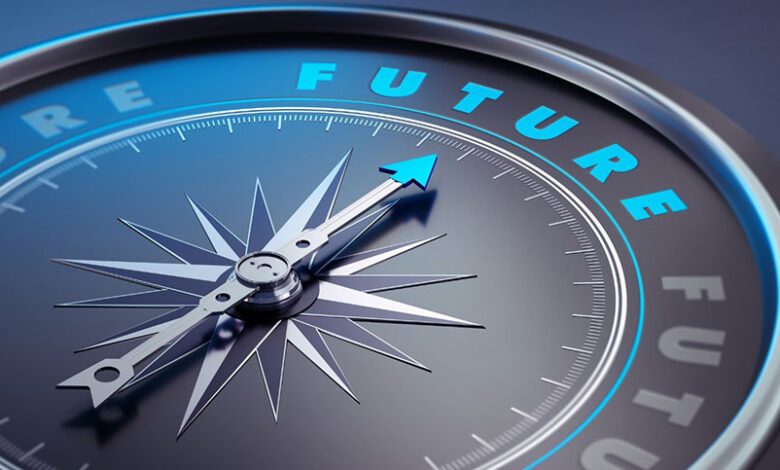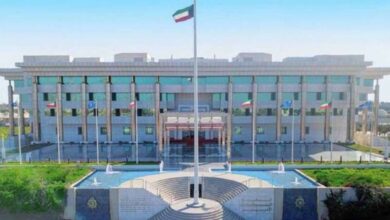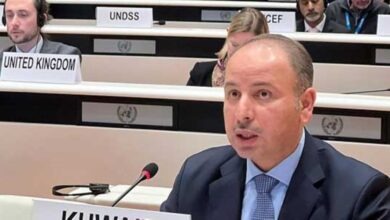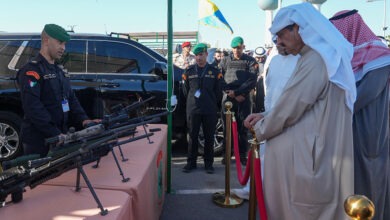Global pact for a better today, a brighter tomorrow

World leaders gathering at the United Nations Headquarters in New York during this last week of September will have a full agenda ahead of them, as they seek to address the multiplicity of intertwined global challenges, and seize opportunities to build a better world for generations living today, as well as to safeguard the interests of future generations.
The high-level meetings will begin on 22– 23 September with the pivotal Summit of the Future, a once-in-a-generation opportunity for the global community to pave a path for a more inclusive, equitable and sustainable world today, and for tomorrow. The Summit will also reaffirm commitment to the 17 Sustainable Development Goals (SDGs), and accelerate the pace to achieving them by 2030.
The summit is significant in that it provides a venue for key global powers to seek a reset in their relations, frayed in recent years from geopolitical exigencies. The high level gathering also offers the prospect of reviving multilateralism and revitalizing international cooperation essential to deal with current and emerging crises, and to mitigate, if not avert the potential existential threats that loom ahead.
Although the summit holds immense potential, there is also a growing realization among many world leaders that the global institutions and tools, many of which were established in the 1940s and colored by the aftermath of World War II, are inadequate to address current challenges. Upgrading and restructuring global institutions is seen as critical to making them more effective, inclusive, and fit-for-purpose to address current and emerging crises.
Promoting international peace, stability and security, achieving inclusive economic growth, addressing climate change and its repercussions, tackling critical environmental challenges, bridging the widening financing gaps, and confronting the threats and opportunities of digital technologies, are some of the other issues that global leaders will aim to tackle at the two-day summit.
Kuwait is being represented at the Summit of the Future by the representative of His Highness the Amir Sheikh Meshal Al-Ahmad Al-Jaber Al-Sabah, His Highness the Crown Prince Sheikh Sabah Khaled Al-Hamad Al-Sabah. His Highness the Crown Prince will also attend the 79th session of the UN General Assembly scheduled for later in the week.
On arriving in New York, His Highness the Crown Prince voiced hope that the Summit would lay the groundwork and standards for collective and more effective global action in the face of the current and future challenges. He added, “The Summit will provide a chance for UN member states to recommit themselves to the principles and objectives of the UN Charter and international law, and step up reforms to the UN system and global financial institutions.”
Success in forging a new global consensus at the high-level conclave will further bolster the intergovernmental action-oriented ‘Pact for the Future’ that leaders are expected to sign at the Summit of the Future. The latest draft version of the Pact released by the United Nations observes, among others, the following key principles: Maintaining international peace, stability and security, and full respect for international law, as well as resolving conflicts through peaceful means, must be promoted in line with the purposes and principles of the UN Charter.
Investing in building a strong foundation for peace and stability, upholding the rule of law, and respecting human rights and advancing the sustainable development goals are the most effective ways to safeguard the needs and interests of everyone today and in the future.
Undertaking comprehensive and targeted strategies to achieve inclusive economic growth and sustainable development, food security, and eradicating poverty in all its forms and dimensions, including extreme poverty, are needed to achieve global resilience and establish a strong foundation for future generations.
Recognizing that future generations represent all those yet to be born, and acknowledging the interconnectedness between past, present and future, as well as realizing that decisions, actions, and inactions taken today have an intergenerational multiplier effect, present generations have the responsibility to safeguard the rights and interests of future generations, so as to ensure a more sustainable, just, and equitable world for generations to come.
Prioritizing solutions to adverse impacts of climate change, and addressing critical environmental challenges, as well as implementing measures to reduce disaster risk. build resilience, and reverse degradation of ecosystems, are needed for a clean, healthy and sustainable planet,
Pursuing universal respect for, and observance of, human rights and fundamental freedoms for all, including civil, political, economic, social and cultural rights, must be respected, protected and promoted, without any distinction or discrimination,
Eliminating all forms of racism, racial discrimination, xenophobia and related intolerance, as well as achieving racial equality and the empowerment of all people, are required for a prosperous and sustainable future,
Implementing policies and programs to promote opportunities, employment, and empowerment at all levels in all spheres of society for women, as well as eliminating all forms of discrimination against, and abuse of, women and girls, are needed to ensure greater gender parity.
Recognizing that the multilateral system and its institutions, with the United Nations and its Charter at the center, must be strengthened and underpinned by transparency, confidence and trust, to keep pace with a rapidly changing world.
Ensuring multilateral systems remain fit for the present and the future, by restructuring them to be more effective and capable, equitable and democratic, inclusive, interconnected and financially stable, is necessary to make them more representative of today’s world and to align them for the needs of ensuing generations.
Harnessing the benefits of existing, new and emerging technologies and mitigating associated risks through effective, inclusive and equitable governance at all levels, as well as scaling up collaboration, increasing capacity building in the field of science, technology and innovation, and promoting the transfer of technology on mutually agreed terms, are vital to bridge the digital divides within and between developed and developing countries. Strengthening cooperation among states to ensure safe, orderly and regular migration between countries of origin, transit and destination, including through expanding pathways for regular migration, and recognizing the positive contribution of migrants are required for more inclusive growth and sustainable development.
Investing in accessible, safe, inclusive and equitable quality education for all, and promoting opportunities for lifelong learning, technical and vocational training, and digital literacy, allowing for the intergenerational acquisition and transfer of knowledge and skills, help advance the prospects of present and future generations,
Protecting the right to enjoy the highest attainable standard of physical and mental health, through universal health coverage, as well as providing equitable access to safe, affordable, effective and quality health products, and resilient health systems, are required to ensure healthy lives of people living today and in the future.
The Summit of the Future is also expected to adopt two annexes to the Pact of the Future, one on a Global Digital Compact (GDC), and the other on a Declaration on Future Generations. In addition, world leaders are scheduled to attend the High-Level Week from 22 to 26 September. Meetings during the High-Level Week are slated to discuss and take action on several issues, including accelerating the pace of progress of many SDGs and addressing the existential threats posed by rising sea-levels, growing antimicrobial resistance, and eliminating nuclear weapons.
The Summit of the Future and ensuing high-level meetings are designed to raise awareness among everyone, not just the leaders and governments, that the challenges that need to be addressed, and the opportunities that lie ahead, can be realized only if we work together with the awareness that ultimately we are are all one people with only one planet to live on.













